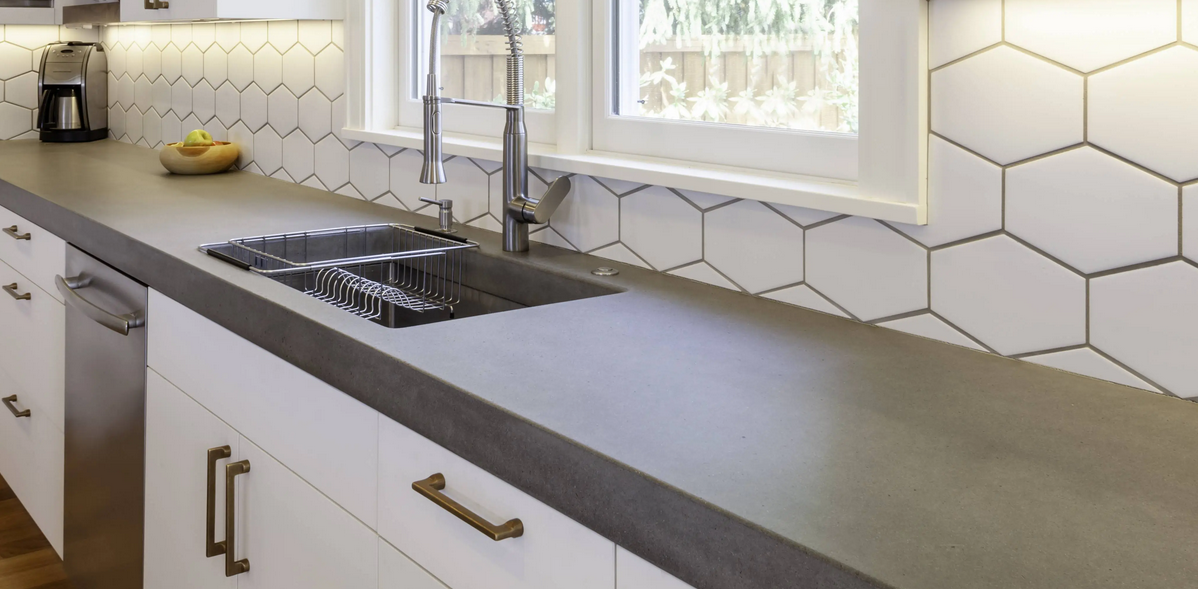Concrete Countertops
Ready to Get Started? Contact or Visit Us Today
Concrete countertops are custom-crafted surfaces made from a blend of cement, aggregates, and water. They offer a unique alternative to traditional countertop materials. Concrete countertops come in various styles, from industrial chic to sleek and modern. Their versatility allows for customization to match your indoor or outdoor kitchen’s aesthetic.
Pros of Concrete Countertops
- Customization: Concrete can be custom-sized and shaped to fit your kitchen dimensions precisely.
- Durability: It’s difficult to scratch and impervious to heat, making it resilient for daily use.
- Embedded Details: Small items like glass fragments, stones, or fiber-optic lights can be embedded into the surface.
- Long-Lasting: Concrete countertops are durable and long-lasting when properly maintained.
- Resale Value: In the right context, they can improve resale value, as they’re considered a premium surface material.
Cons of Concrete Countertops
- Cost: Concrete countertops can be expensive.
- Sealing Requirement: Regular sealing is necessary to avoid staining.
- Weight: Concrete’s excessive weight may stress cabinet frames and floors.
- Repair Challenges: DIY repairs can be difficult due to the material’s nature.
Style Versatility
- Modern Aesthetics: Concrete countertops exude a modern industrial aesthetic, making them a great fit for contemporary kitchens.
- Color and Texture: They can be etched, acid-stained, stamped, and sealed to create unique surfaces.
- Warm and Gleaming: Today’s concrete countertops are warm and stylish, far from the cold gray slabs of the past.
In summary, concrete countertops offer a blend of durability, customization, and style. Consider your budget, maintenance commitment, and design preferences before choosing this distinctive material for your kitchen!







